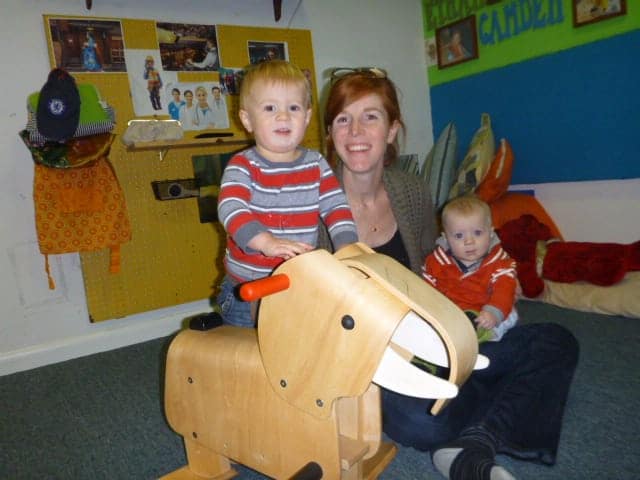Learn what to ask and what to look for when touring an early childhood program

There are lots of articles about questions to ask and what to look for when you’re touring a preschool program. Unfortunately there is a lot of misinformation about what high-quality early childhood education really looks like. The research into what leads to great early childhood experiences is mixed; lower child-to-teacher ratios, stringent teacher credentials, and beautiful environments don’t necessarily equal a high-quality program. Asking about and looking at the basic logistics doesn’t necessarily mean the program is high-quality. The best measure of quality in early childhood programs is the teacher-child interactions. In high-quality programs, the teachers have the skills, resources, and desire to engage with the children as they learn. High-quality teachers help to stretch children’s thinking and delve deeper into the children’s ideas. When you’re touring a program play close attention to how the teachers interact with the children, how they are supported, and what goals the program has for children. <Link to The Importance of Being Little Book Review>
Teacher-Child Interactions are Key
Look for teachers playing with, attending to, and showing love towards the children. Teachers’ language should be positive and encouraging. The highest quality programs are those in which teachers help to scaffold children’s learning by offering just enough help. Children should be able to freely explore their classroom, and be allowed to use toys and materials they choose. Children may be thrown off by visitors but should seem genuinely happy and free to explore, not fearful of their teachers. You may see children crying or upset, look at how the teachers handle their upset. Children build emotional intelligence by working through problems not being hushed, appeased, or distracted. Look for presence and empathy with emotions.
Questions to Ask
- How much change do children experience each day? How many spaces and teachers do children experience? How and when children are moved up to an older classroom? How are schedules and routines established and what might lead to a change in routines?
- How are teachers trained in child development, behavior guidance, and curriculum? Ask about how teachers are supported and how they meet their annual professional development requirements. Teachers will teach what they learn. What is the program doing to reduce staff turnover?
- What is the program’s philosophy and how does center handle differing parent philosophies? How are problems handled between children, teachers, and families?
- What level of parent involvement is expected or typical? What types of communication should parents expect about daily activities, learning, and growth?- High quality programs listen to parents but do not change based on each parent’s whim. Systems should be in place to support parent involvement and communication.
Categories: Child Care
Tags:
